10 Great Songs with mistakes

In the studio, even the most lackadaisical musicians can usually be counted on to stop a take or re-record a song if they notice something wrong. Sometimes that stems from the quest for a sound that Feels Just Right, but more often it’s just to fix technical errors (wrong production levels, a misplaced drum hit or string pluck) or clean up studio clumsiness (a knock on a door, fumbled lyrics). Who wants to waste time and tape to commit flawed music to a professional release, right? And yet there are some musicians who have gone the “they’ll dance to anything” route and put out imperfectly played, sung, recorded, or mastered songs. Weirder still, fans and artists have embraced some of these as cult favorites, beloved deep cuts, even actual classics. Just look at The Kingsmen’s “Louie Louie,” a single take so messy and filled with sonic Easter Eggs that even the FBI couldn’t figure it out. So here’s our examination of 10 of the most egregious examples of songs with mistakes. Don’t feel too bad about liking them; we critique because we love.
Photo by Tim Reckmann, Creative Commons [CC BY 2.0]

Bob Dylan – “Visions of Johanna”
from Blonde on Blonde (1966; Columbia)
Whether or not some of Joe South’s bass notes in “Visions of Johanna” as recorded on Blonde on Blonde are famous mistakes, they serve the dual purpose of pulling the listener simultaneously out and back in to the song, even if they aren’t aware that they needed to be. At 1:58, when Dylan is telling you about the night watchman, he plays a note so sour that it forces your attention. The bounciness of the bass is a key ingredient in communicating the messages of longing, regret and optimism that if it were smoother, the song would mean something different. Similar missed notes appear once or twice later in the song, most notably during the elongated last verse (at 6:30, when the fiddler steps to the road) when South goes up as if anticipating a change. Dylan is not one to suffer mistakes easily, so it’s possible that they were either intended or Dylan agreed that they added something to the song. – CG
Listen: “Visions of Johanna“
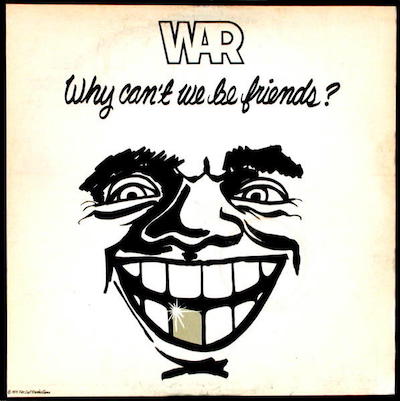
War – “Why Can’t We Be Friends?”
from Why Can’t We Be Friends? (1975; United Artists)
You don’t have to wait too long to hear keyboardist Lonnie Jordan’s flub in one of the most joyous R&B hits of the ‘70s: It happens right in his introductory solo. On the eighth chord in Jordan’s pattern he accidentally hits a note that’s one half-step higher than the note he intends to hit. The result is what musicians call a grace note: a tiny, quick tone that immediately resolves into another, longer note. But it’s out of tune with the basic chord of the song—quite obviously a mistake. Why this error fascinates me: It’s something War’s recording engineer and Jordan could have fixed immediately. We’re talking a four-second segment that could have been re-recorded in a flash so it would be perfect. Yet they not only left the mistake in, they released the uncorrected song as a single and got one of their biggest hits. Why? Was it just another example of the song’s laid-back, loose charm? Did somebody have a family emergency and couldn’t get around to fixing it before the tapes were due at the mastering plant? Was the engineer getting paid by the note? Or maybe, as the rest of the song implies, we’re supposed to love it the way it is. Thankfully that’s easy to do. – PP
Listen: “Why Can’t We Be Friends?“
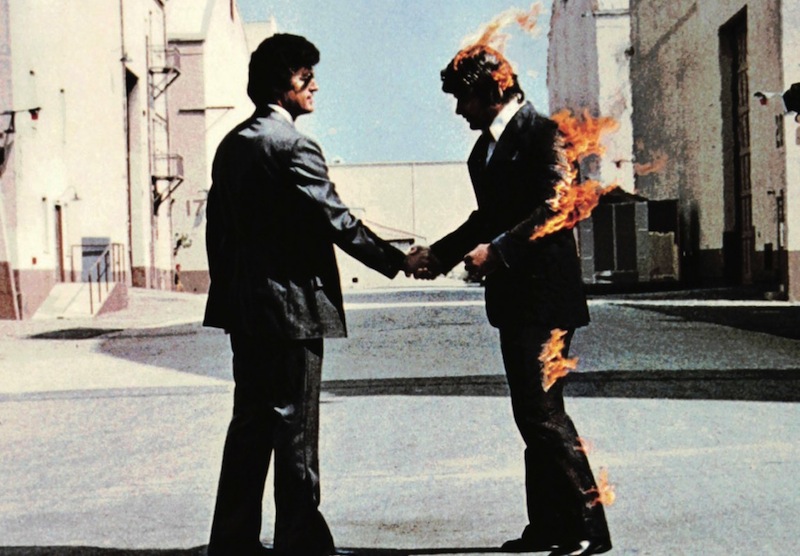
Pink Floyd – “Wish You Were Here”
from Wish You Were Here (1975; Columbia)
Pink Floyd’s epic 1975 album is a beautiful, sad signal flare sent up for their exiled former bandmate Syd Barrett. It’s a masterwork of soundcraft to help tell a story, but the title cut featured some that may ultimately have been a happy accident. The intro lands us in what’s supposed to be a room with someone (an avatar for Barrett) playing acoustic guitar alongside a radio broadcast. The performance is actually by band co-leader David Gilmour amid some questionable breathing caught on tape, including sniffles and coughing. While one school of thought claims that those noises were either done on purpose or just more radio chatter, another insists that Gilmour couldn’t control the side effects of his smoking—and that he quit cold turkey upon hearing the playback. – AB
Listen: “Wish You Were Here“
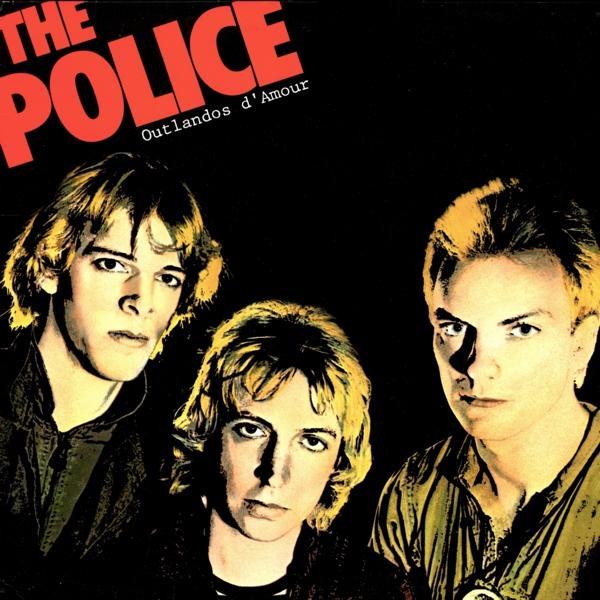
The Police – “Roxanne”
from Outlandos d’Amour (1978; A&M)
The beginning of this post-punk classic has bothered me forever. My gears always grind over the shift in pitch and tempo of Andy Summers’ guitar chords as the song starts. In researching this cut, the best excuse for that flange seems to be loose recording tape wrapping around a takeup reel too slowly. But a few seconds later is one of the song’s defining sounds that on its face doesn’t quite sound like a mistake—an atonal noise followed by Sting’s soft laugh, almost as if he were on the same street occupied by the song’s namesake reluctant prostitute. The truth is much more mundane: In trying to sit down for the studio take, Sting accidentally introduced his ass to some piano keys. – AB
Listen: “Roxanne“
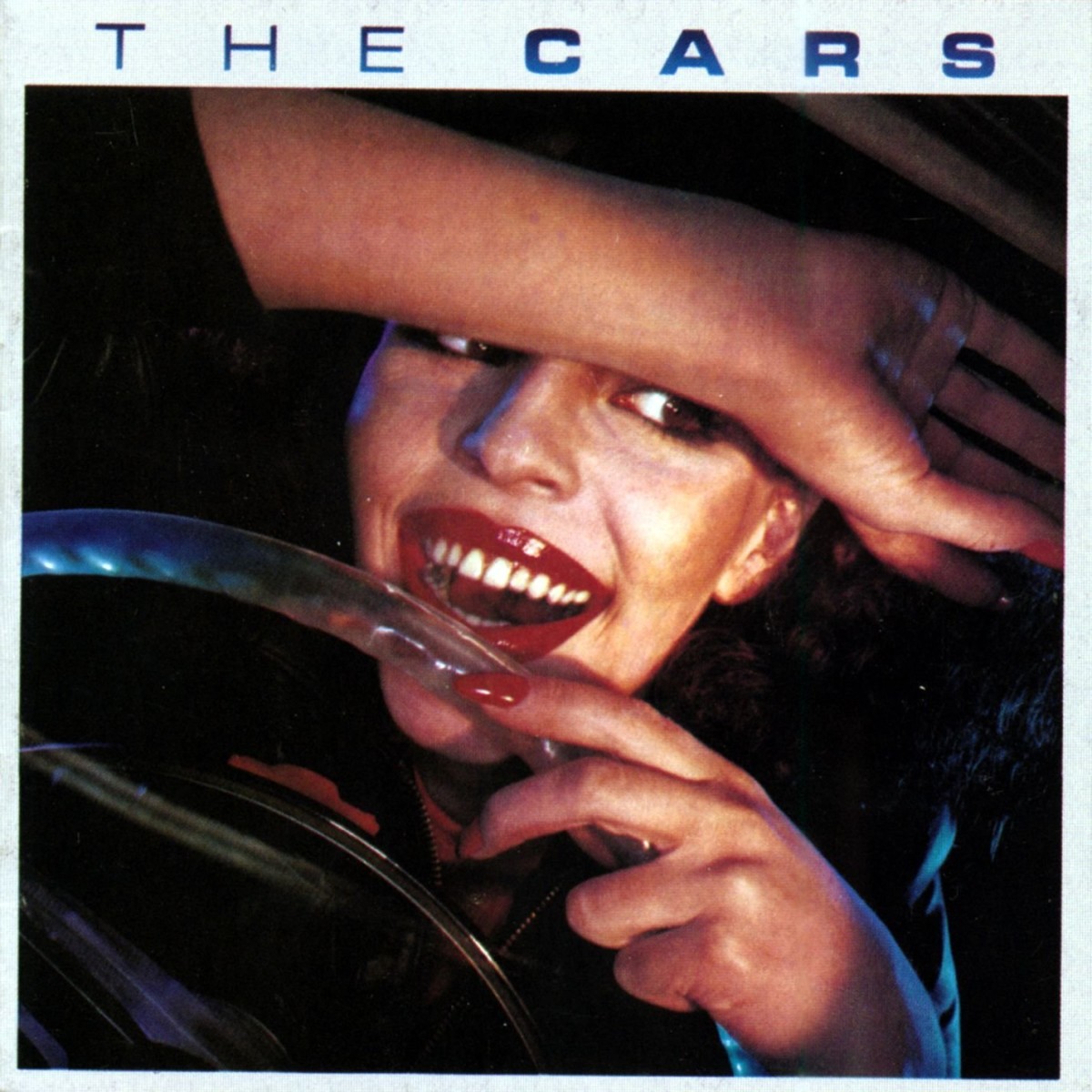
The Cars – “Just What I Needed”
from The Cars (1978; Elektra)
In terms of return on mis-investment, the drum error on the Cars’ debut single might be the Most Valuable Mistake on this list. It happens in the third and final verse. Up to that point drummer David Robinson has played a standard rock beat, with the snare kicking in on the second and fourth beats of each bar like it’s supposed to in virtually every mid-tempo rock song. But on the line “’Cause when you’re standing oh so near, I kinda lose my mind,” Robinson gets mixed up and hits the snare on the first and third beats. Instead of going kick-SNARE-kick-SNARE, he goes SNARE-kick-SNARE-kick. That mistake disrupts the meter in the listener’s head—and gives a whole new layer of meaning to the song. Up to that point singer Ric Ocasek’s been very structured in the face of a relationship that isn’t all that great, but nonetheless gives his life some sad shadow of order. The Robinson mess-up, though, adds an element of disorder, an audio clue that there’s something amiss in his defense mechanism. The mistake works so well that a couple of bars later Robinson does it again—this time, intentionally. – PP
Listen: “Just What I Needed“
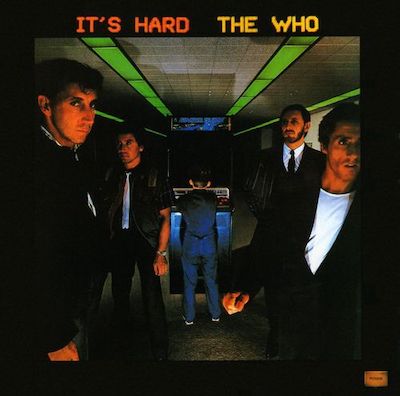
The Who – “Eminence Front”
from It’s Hard (1982; MCA)
Lyrical flubs in professionally released music are everywhere and nowhere at once. Flip-flopped words pass us by in the blink of an ear. When timed right, mistimed vocal cues can sound natural, even purposeful. But nothing should have allowed the original LP version of this cut to reach mass duplication. The opening of the first chorus finds Pete Townshend, on a rare lead vocal, quickly falling a syllable behind Roger Daltrey. With each committed to slightly different words (“Behind an eminence front” vs. “It’s an eminence front”), it feels like the duo need a dozen extra sounds and mouth movements to finally reach the end of the line. You can almost hear Townshend rolling his eyes. It says a lot—none of it good—that this flawed anthem-to-be for coked-out 1980s culture is still somehow this album’s saving grace. – AB
Listen: “Eminence Front“

U2 – “The Unforgettable Fire”
from The Unforgettable Fire (1984; Island)
U2 probably isn’t the first band that comes to mind when we think of bands who release songs with mistakes—as one of the biggest groups in the world, they’ve rarely delivered something short of a completely meticulous production. But that doesn’t mean the process is flawless, and on the title track of 1984’s The Unforgettable Fire, the band actually let a mistake into the final mix. Listen carefully to The Edge’s gorgeously ambient guitar intro with a good pair of headphones, and you’ll notice drummer Larry Mullen Jr. counting off with his sticks before realizing he wasn’t supposed to start (and mutters a barely audible “oh shit”). It’s so subtle it mostly goes unnoticed, but in what’s one of the group’s best and earliest examples of the kind of layered art rock they came to specialize in, it allows listeners to see the sketches and rough drafts behind their epic anthems. – JT
Listen: “The Unforgettable Fire“

The B-52’s – “Love Shack”
from Cosmic Thing (1989; Warner Bros.)
Wait, what the hell’s wrong with this? Well, music is littered with songs where a vocalist jumps into their lyrics too soon or too late (Nirvana’s “Polly” and James Blunt’s “You’re Beautiful” immediately leap to mind). In a 2011 interview, Kate Pierson let it slip that bandmate Cindy Wilson missed a cue in the song’s instrumental track. Her legendary caterwaul—”Tin roof rusted!”—wasn’t supposed to be a solo a cappella, or at least was a beat or two off. The band decided to leave it in as a point of emphasis. It helped turn the song from merely a party monster into one of alt-pop’s signature tracks. – AB
Listen: “Love Shack“

R.E.M. – “The Sidewinder Sleeps Tonite”
from Automatic for the People (1992; Warner Bros.)
The Athens, Georgia quartet included this song—inspired by and interpolating The Tokens’ “The Lion Sleeps Tonight”—as a light-hearted respite from the towering drama throughout Automatic for the People. It too had its share of melancholy, referencing missed connections and the lost playthings of youth, but just past the song’s halfway point Michael Stipe ends the third verse and enters the chorus (“Or a reading by Dr. Seuss/Call when you try to wake her up”) while working through a laugh. Interviews suggest he kept stressing “Seuss” too much, making it “Zeus,” and the band decided to keep his incredulousness in the picture. It’s an inadvertent moment shining rare lights of humor and self-deprecation on their infamously guarded lead singer. – AB
Listen: “The Sidewinder Sleeps Tonite“
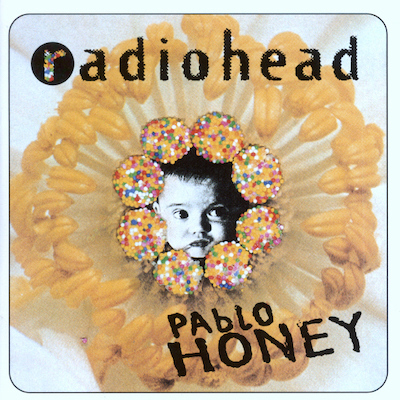
Radiohead – “Creep”
from Pablo Honey (1993; Capitol)
Not many publicly available musical mistakes come to mind that were made with some form of malicious intent, but Radiohead guitarist Jonny Greenwood presaged the band’s reputation as a go-big-or-go-home kind of outfit. Greenwood wasn’t a huge fan of the song’s original quiet nature, so he went out of his way to fuck it up. He would yank tuneless dead notes out of his guitar as Thom Yorke propelled his own bitterness to the chorus: “But I’m a creep/I’m a weirdo.” As practice on the song progressed, the band decided to accept the noise as part of the song, and the studio wonks they then played it for smartly chose to preserve it for posterity. The rest, as they say, is a career. – AB
Listen: “Creep“
Support our Site—Subscribe to Our Patreon: Become one of our monthly patrons and help support an independent media resource while gaining access to exclusive content, shirts, playlists, mixtapes and more.

I’ve discovered a terrible vocal mistake in the Four Aces recording of “Love is a Many Splendored Thing.”
On a pivot chord to the key change, one of the singers misses a suspension/resolution combination by
singing the note of the resolution, while the entire orchestra is playing the suspension, followed by the
resolution. I’m astounded that the producer did nothing about this. As a singer and professional musician,
this sticks out like a sore thumb and it should have been fixed with another take! But, what do I know.
This recording was very popular and made big money for the record company, the group and the producer!